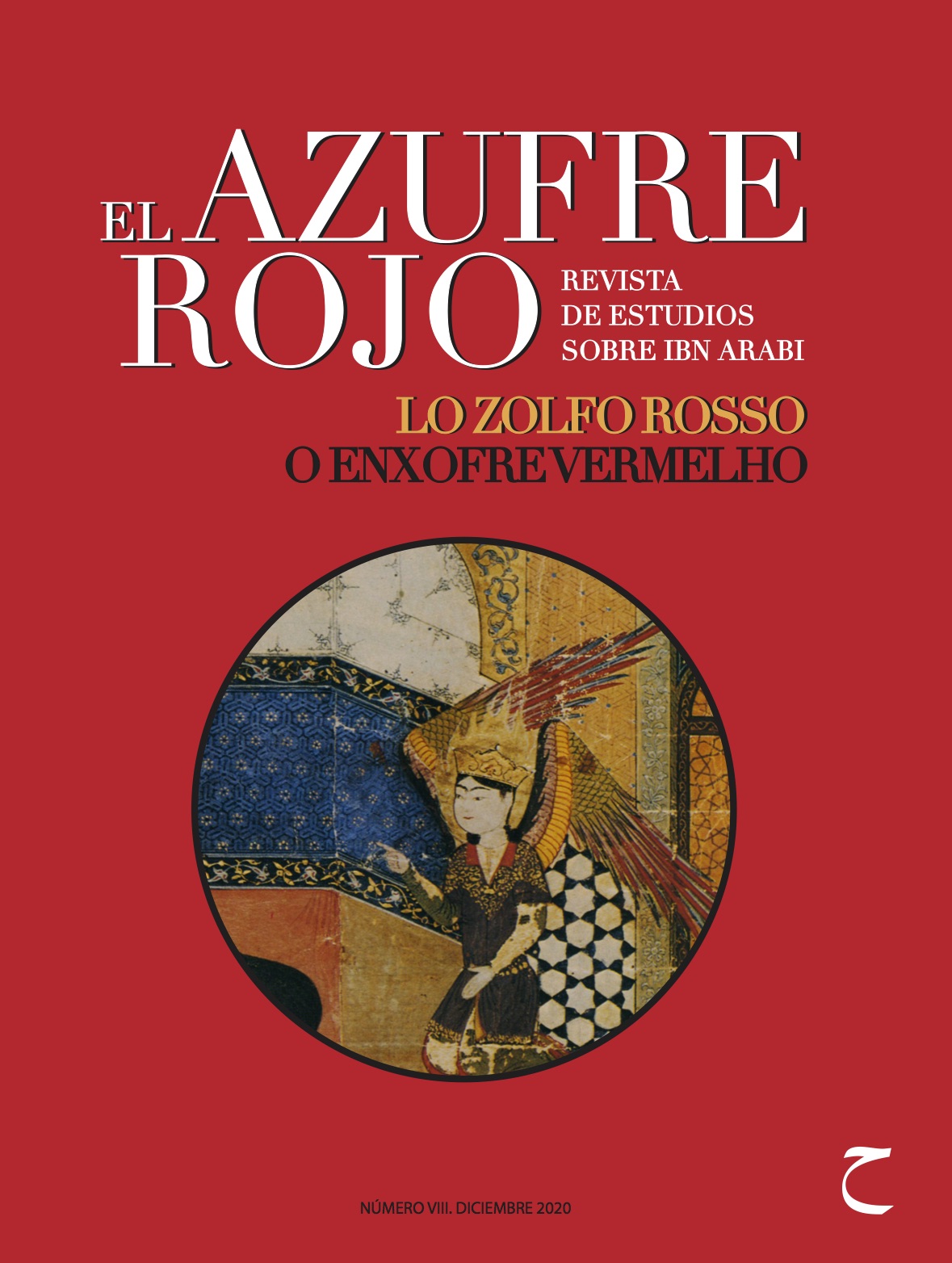UN VIAJE A TRAVÉS DEL WAṢL Y EL FAṢL. MUJER Y SEXUALIDAD EN EL PENSAMIENTO DE IBN ῾ARABĪ
Resumen
Resumen: El ser humano está en continua búsqueda de un lugar y una orientación dentro de un mundo que, supuestamente, es su morada. Este ha sido designado por Dios como Su vicerregente (jalīfa), es decir, su representante en la Tierra. Este artículo aborda la concepción de la mujer y la realización del papel de vicerregente por medio de la participación en la relación sexual dentro del marco del matrimonio, como un modo particular de ser, y como actividad física y metafísica necesaria para la existencia humana que posibilita a los seres humanos alcanzar la proximidad con la Presencia Divina. Para ello, se investigará la discusión planteada por Ibn ῾Arabī en su Fuṣūṣ al-Ḥikam en la que se analiza el dicho profético “Se me han hecho amar tres cosas en este mundo: las mujeres, el perfume y la oración como solaz de los ojos".
Abstract: The human being is in a constant struggle to find a place, an orientation for him/herself within a world that is supposedly an abode. He/she was assigned by God to be a vicegerent (khalīfa), a representative of Him on earth. This paper aims to tackle the conception of women and the fulfillment of the role of a vicegerent through human participation in sexual intercourse within the framework of marriage as a particular mode of being, and as recurring physical and metaphysical activity pertinent to human existence which could allow human beings to rise to the proximity of the Divine presence. This will be accomplished through investigating; Ibn ʿArabī’s discussion of those activities in his book Fuṣūṣ al-Ḫikam, where he analyzes the prophetic saying: “Three things were made beloved to me in this world of yours: women, perfume and the solace of my eye was made in prayer”.
Descargas
-
Resumen521
-
pdf363
Citas
- Andrés Guijarro (trad.), Los engarces de las sabidurías (Fuṣūṣ al-Ḫikam), Madrid: Edaf, 2008.
- Austin, R.W.J., (ed. y trad.), Ibn al-῾Arabī, The Bezels of Wisdom, Nueva jersey, Paulist Press, 1980.
- Emmanuel Levinas, Totality and Infinity: An Essay on Exteriority, trad. Alphonso Lingis (2011).
-----, (2002) Totalidad e Infinito. Ensayo sobre la exterioridad, Daniel E. Guillot (tr.), Salamanca: Sígueme.
- Ibn ῾Arabī, ῾Uqlat al-Mustawfiz, Shehit Ali MS 1341.
-----, Ibn ʿArabī, Futūḥāt, II:133.33. Cairo: 1911; repr. Beirut: Dar Sadir, n.d. O. Yahia (ed.). Cairo: Al Hayʾat al-Misriyyat al-ʿAmma li’l Kitab, 1972.
- López Anguita, Gracia, “El principio femenino en los textos cosmológicos del sufí Muhyiddīn Ibn ʿArabī (1165-1240 d. C.)” en Torres, K. y Borrego, F. La mujer musulmana: desde la traducción a la realidad, Sevilla: Arcibel, 2010.
- Murata, Sachiko. The Tao of Islam: A Sourcebook on Gender Relationships in Islamic Thought, Albany, NY, SUNY Press, 1992
- William Chittick, The Sufi Path of Knowledge: Ibn al-ʿArabi’s Metaphysics of Imagination (Albany, NY: State University of New York Press, 1989)


